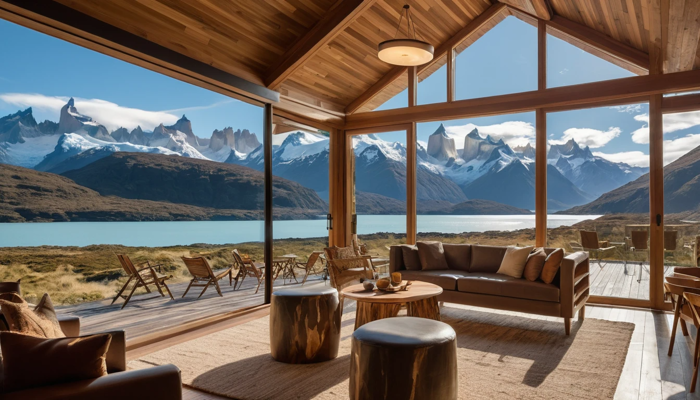Marine biology expeditions for adults let you explore oceans, study wildlife, and enjoy unforgettable travel adventures with experts.
Marine biology expeditions for adults combine adventure, science, and travel. These trips let participants explore oceans, study marine wildlife, and learn from experts. Perfect for travelers who crave both education and excitement, these programs offer hands-on research and unforgettable ocean adventures.
🌟 Ready To Dive Into The Ocean Like A Scientist?
Have you ever dreamed of exploring the deep blue sea, not as a tourist but as a researcher? Imagine standing on a research vessel, gazing into crystal waters, while helping real scientists track dolphins or study coral reefs. Marine biology expeditions for adults aren’t just vacations—they’re thrilling, once-in-a-lifetime adventures. They give you the chance to learn, explore, and contribute to ocean science. Best of all, you don’t need a PhD to join. All you need is curiosity, passion, and a love for the sea.
🌊 What Are Marine Biology Expeditions For Adults?
Marine biology expeditions are guided trips led by scientists where participants help with real research. Unlike typical cruises, these journeys are immersive learning experiences. Adults join small groups to explore ecosystems like coral reefs, mangroves, or deep-sea habitats. You’ll collect data, snorkel or dive, and sometimes even tag marine animals. Programs balance research with relaxation, so you also enjoy scenic islands and local culture. Think of it as a blend of science, travel, and eco-adventure rolled into one.
🔎 Why Adults Choose Marine Biology Expeditions
People join these expeditions for many reasons. Some want to relive childhood dreams of becoming a marine biologist. Others crave meaningful travel experiences that go beyond sightseeing. Many seek connection with like-minded explorers who share a passion for the ocean. Expeditions also offer a refreshing break from routine, giving adults a chance to step into a world of discovery. You’ll learn hands-on skills, gain deeper respect for marine life, and contribute to conservation. It’s education disguised as adventure.
🐬 Hands-On Activities You’ll Experience
During an expedition, expect much more than lectures. Activities are practical, exciting, and often unforgettable:
- Snorkeling & Diving: Explore coral reefs and observe fish behavior.
- Wildlife Monitoring: Help tag sea turtles or track dolphin pods.
- Lab Work: Analyze water samples and learn marine research methods.
- Boat Surveys: Record sightings of whales, sharks, or seabirds.
- Night Walks: Discover bioluminescent plankton sparkling like stars.
Each task is guided by professionals, so even beginners feel confident and safe.
📍 Top Destinations For Marine Biology Expeditions
Expeditions are hosted in stunning locations worldwide. Some of the most popular spots include:
- The Great Barrier Reef in Australia 🌏
- The Galápagos Islands in Ecuador 🐢
- The Caribbean Sea in Belize 🌴
- The Pacific Coast of Costa Rica 🐒
- The Mediterranean Sea in Greece 🏛️
Each location offers unique species and ecosystems, making every expedition different.
📊 Comparison of Popular Expedition Destinations
| Destination | Highlight Species | Best For | Travel Season |
| Great Barrier Reef | Sea turtles, reef fish | Diving lovers | May–Oct |
| Galápagos Islands | Marine iguanas, sea lions | Wildlife enthusiasts | Year-round |
| Belize | Nurse sharks, coral reefs | Beginner snorkelers | Dec–Apr |
| Costa Rica | Dolphins, whales | Conservation-minded travelers | Dec–May |
| Greece | Octopus, seagrass meadows | Culture & marine mix | May–Sep |
🌱 Eco-Impact Of Joining Expeditions
One of the best parts of marine biology expeditions is knowing your trip supports conservation. By participating, you’re not only learning but also helping researchers gather critical data. Many projects track endangered species, study coral bleaching, or assess pollution levels. Your contributions may even shape local policy decisions. Instead of being a passive tourist, you become an active part of protecting the ocean. It’s travel with purpose, leaving a positive footprint.
🧳 What To Pack For An Expedition
Packing smart is key. Here’s a quick checklist:
- Lightweight, quick-dry clothes 👕
- Snorkeling or dive gear (if not provided) 🤿
- Eco-friendly sunscreen 🌞
- Waterproof notebook 📒
- Reusable water bottle 💧
- Seasickness bands 🎯
- Camera for underwater photography 📸
Bring curiosity and energy, too—those are just as important as gear.
💰 Costs And Budget Considerations
Expeditions vary in cost. Prices usually range from $1,500 to $5,000, depending on location, length, and amenities. This often includes lodging, meals, and research fees. Airfare, gear rentals, and personal expenses are extra. While not cheap, the value is immense compared to standard vacations. You gain scientific knowledge, field experience, and memories that last a lifetime. Many organizations also offer scholarships or volunteer discounts.
📊 Sample Expedition Cost Breakdown
| Expense Category | Average Cost | Included/Not Included |
| Program Fee | $2,500 | Lodging, meals, research activities |
| Airfare | $800 | Not included |
| Gear Rental | $150 | Optional |
| Travel Insurance | $200 | Required |
| Extras | $300 | Souvenirs, tips |
👩🔬 Do You Need To Be A Scientist To Join?
Not at all. Most expeditions welcome adults from all backgrounds. Training is provided on-site, and tasks are tailored to different skill levels. Beginners might record observations, while advanced divers may assist with tagging. Enthusiasm matters more than expertise. In fact, many participants are professionals from unrelated fields—teachers, engineers, artists—who simply love the ocean. Scientists value the fresh perspectives and extra hands.
🦈 Wildlife You Might Encounter
Each destination introduces you to fascinating creatures. Imagine snorkeling beside gentle whale sharks or spotting colorful nudibranchs. You may see playful dolphins, majestic manta rays, or even elusive hammerhead sharks. Birdwatchers enjoy observing seabirds like albatrosses and frigates. Every encounter is guided and respectful, ensuring animals are not disturbed. These close interactions spark a lifelong love for marine life.
📊 Quick Look At Marine Wildlife Encounters
| Animal | Best Destination | Activity |
| Whale Shark | Mexico | Snorkeling |
| Dolphin | Costa Rica | Boat surveys |
| Sea Turtle | Australia | Nest monitoring |
| Manta Ray | Maldives | Diving |
| Albatross | Galápagos | Birdwatching |
🏝️ The Social Side Of Expeditions
Beyond science, expeditions are about people. You’ll bond with fellow travelers over shared meals, late-night talks, and field adventures. Many participants form lifelong friendships and return together for future trips. The group environment fosters teamwork, resilience, and joy. There’s something powerful about connecting with others who share your passion for the sea. It turns travel into a community experience.
📚 Learning Beyond The Field
Marine biology expeditions also include evening lectures, documentaries, or cultural exchanges. You’ll gain insights into local traditions, history, and conservation challenges. Some programs even let you visit community schools or eco-centers. The learning continues long after you leave the field. Many adults find the knowledge inspires them to support conservation efforts at home. It’s not just about seeing the ocean—it’s about understanding it deeply.
🏆 Benefits Of Marine Biology Expeditions For Adults
The rewards go far beyond the trip itself:
- Gain hands-on marine science skills.
- Support meaningful conservation projects.
- Travel to stunning, remote destinations.
- Build lifelong friendships.
- Boost personal growth and confidence.
These experiences can transform how you view travel, nature, and your role in protecting the planet.
🌍 How To Choose The Right Expedition
With so many programs, how do you pick? Consider:
- Your Goals: Do you want adventure, education, or both?
- Location: Tropical reefs, temperate seas, or island ecosystems?
- Budget: Balance costs with included amenities.
- Physical Ability: Some trips require strong swimming skills.
- Organization Credibility: Choose groups with proven conservation impact.
Research carefully, and you’ll find the perfect match.
🎯 Final Thoughts: Why You Should Go
Marine biology expeditions for adults are more than travel—they’re gateways to discovery. You’ll learn, contribute, and connect with nature in unforgettable ways. These adventures balance science, fun, and purpose. Whether you snorkel a reef, track dolphins, or study sea turtles, you’ll return home transformed. If the ocean calls to you, answer it with courage. Your next great adventure might just save the sea. 🌊💙
❓ FAQs
What is a marine biology expedition for adults?
It’s a guided research trip where adults join scientists to study marine life. You help with real projects like wildlife surveys or coral monitoring. It blends travel, education, and conservation.
Do I need diving experience for marine expeditions?
Not always. Many expeditions welcome beginners and provide snorkeling options. Diving experience simply opens up more research opportunities.
How long do marine biology expeditions last?
Trips usually range from one week to three weeks. Shorter programs are perfect for vacations, while longer ones allow deeper involvement.
Are marine biology expeditions safe for adults?
Yes. Safety is a top priority with trained staff and clear guidelines. Activities are supervised, and equipment is provided when needed.
Can adults join without a science background?
Absolutely. Most programs are designed for curious learners. Training is included, so anyone passionate about the ocean can participate.







Leave a Reply